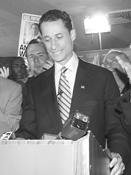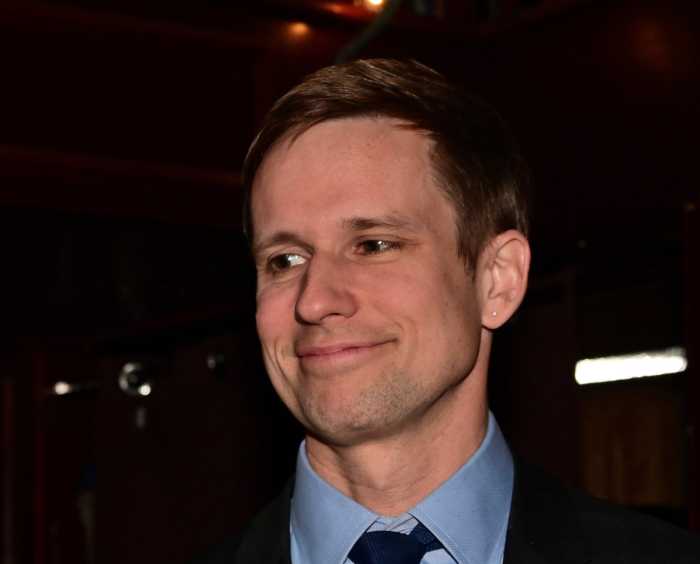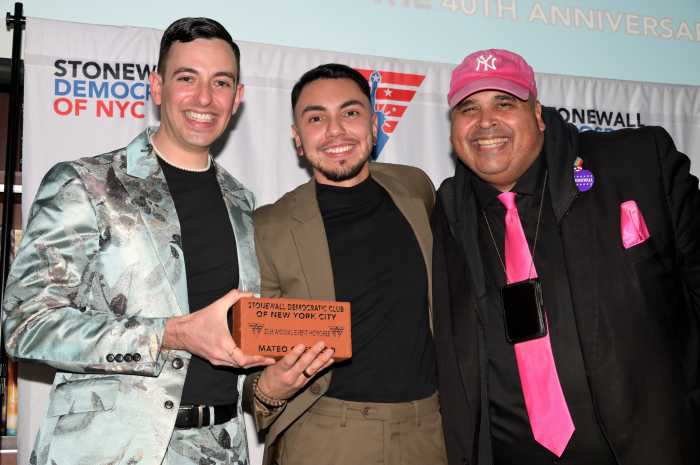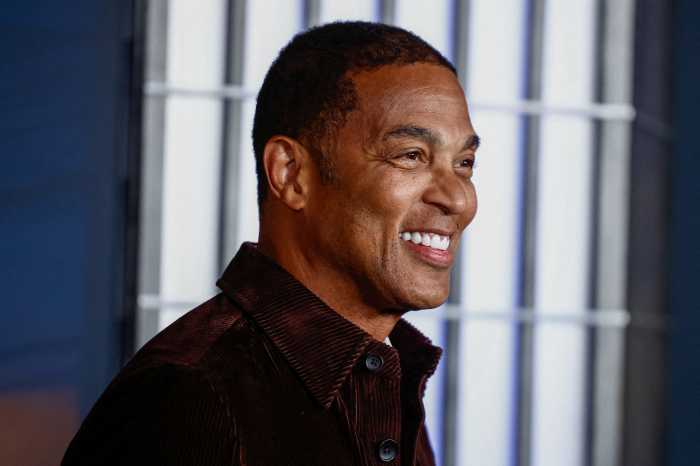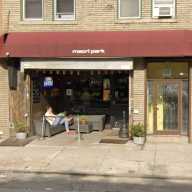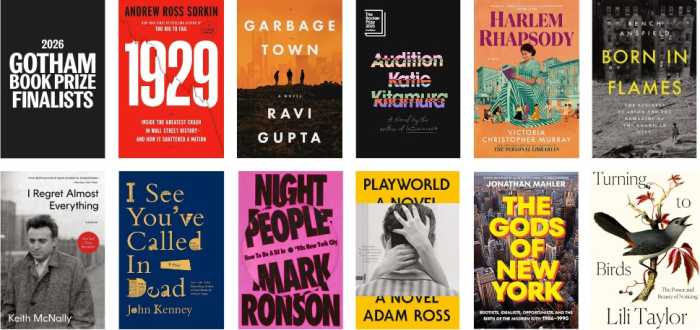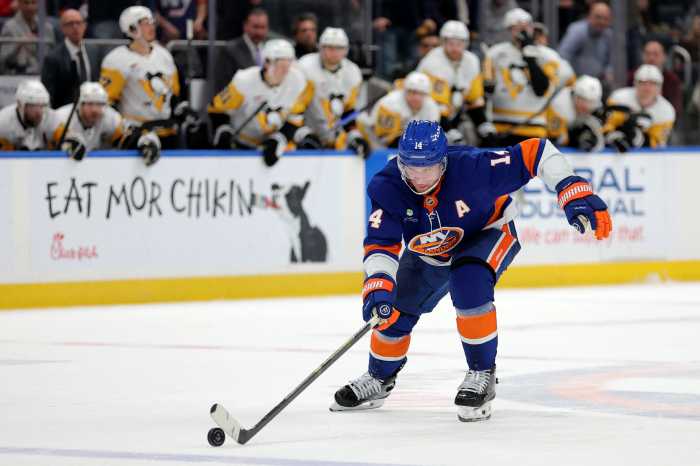In stunner, Brooklyn-born congressman bows out
Twelve hours after he vowed to take back City Hall from Republican Mayor Michael R. Bloomberg and roughly five hours after he started that campaign outside a subway stop in East Harlem, Congressman Anthony D. Weiner stood outside the Park Slope brownstone where he was raised and conceded to Fernando Ferrer, the former Bronx borough president, in the Democratic primary.
“This is the time to put aside my opportunity for a runoff campaign to highlight our differences and step aside so Freddy Ferrer, with his long record of service, his steadfast commitment to all New Yorkers can quickly begin to make his case against Republican Mike Bloomberg,” Weiner said during a noon press conference on September 14 that was carried live by several local television news outlets.
At midnight the previous evening, Weiner had struck a different note when he spoke in a Midtown restaurant that was packed with his campaign staff and volunteers. He named several things he would do “as mayor” and noted how much he had liked traveling throughout the city during the campaign. He looked forward to more of that.
“I’m going to enjoy campaigning in this city just as I’m going to enjoy the first four years of governing it,” he said.
There were moments during that event when it looked as if Ferrer might get the 40 percent of the vote required to avoid a runoff ballot on September 27.
Throughout the evening, volunteers and staff watched four large televisions, one placed in each of the restaurant’s four corners, and, at 9:45, the first unofficial results showed Ferrer leading the field with 43 percent of the vote to Weiner’s 27 percent. Manhattan Borough President C. Virginia Fields and City Council Speaker Gifford Miller were never in the running. At that point, 47 percent of precincts had reported. Staff noted that those early results were coming from the Bronx where Ferrer was expected to do well.
As the evening wore on, that analysis appeared to be the case. Each successive report showed Ferrer’s numbers edging down closer to 40 percent and with every report the crowd roared. The loudest cheering came when, with 97 percent of precincts reporting, Ferrer had 39.9 percent of the vote, just below the 40 percent needed to avoid a runoff with Weiner. When that graphic appeared, the crowd took up a sustained “Weiner, Weiner” chant while clapping in unison.
When Ferrer came on television at 11:20, broadcasting from his campaign event at the Puck Building in SoHo, Weiner’s supporters grew quiet.
“The road has been long, my friends, and we are almost there,” Ferrer said. “In eight weeks we are going to make history.”
Ferrer said “a new city is rising” and the “misguided hand of this Republican mayor” would be removed from City Hall.
“No more stadiums,” Ferrer said. “It’s time to build schools… No more flights around the world chasing the Olympics, it’s time to build subways.”
It took another 40 minutes for Weiner to appear to give his speech. It is not at all clear why 12 hours later he abandoned the race, but Weiner left himself room to get out on Tuesday night. He thanked all three of his fellow Democratic mayoral contenders and said he wanted a run-off campaign that was “based on policies… I would rather lose this election than leave this city in tatters.”
Weiner still achieved something remarkable. He began the race as a relative unknown in the field of four.
“One of the challenges we had was we had a great candidate, but the name recognition was not there,” said Mark Benoit, a gay man who is a seasoned political operative and served as Weiner’s campaign manager, early in the evening on September 13.
The campaign spent a sizable portion of its relatively small campaign budget on television advertising to introduce its candidate to voters. Some of Weiner’s platform was particularly popular among voters. The tax cut for the middle class scored well “across racial and ethnic lines,” Benoit said.
Weiner represents parts of Brooklyn and Queens in Congress and he represented a portion of Brooklyn when he served in the City Council beginning in 1991. He was elected to the House in 1998 when now U.S. Senator Charles Schumer gave up that seat to run for the Senate.
Brooklyn and Queens were Weiner’s base and the campaign worked the entire city, Benoit said. He mentioned the Upper West Side, Chelsea, and the West Village as neighborhoods where Weiner had recently campaigned.
“We didn’t neglect any part of the city,” Benoit said.
On Tuesday, the campaign had several hundred volunteers knocking on doors and making phone calls to get its voters to the polls.
“I would think that our get out the vote effort was probably the leanest and meanest,” Benoit said.
Still it was a daunting challenge. Fields, Miller, and Ferrer were all better known.
Ferrer was first elected to the City Council in 1982 where he represented the Bronx until 1987 when he won the Bronx borough presidency. Ferrer served in that position until 2001 when he made his first full run for mayor, having dropped a prospective 1997 in the spring of that year. Miller had headed the City Council for two terms, collected more campaign cash, and was not averse to promoting himself through City Council-funded mailings. Fields has been Manhattan borough president for eight years after representing Harlem in the City Council for eight years.
Despite their higher profiles, Fields and Miller had dismal results in the race. Fields had just under 16 percent of the vote and she was easily beaten even in Manhattan by both Ferrer and Weiner, according to results reported in the Daily News. Miller, at 10.2 percent of the vote, fared even worse. He beat Fields in a single borough, Staten Island, with 1,404 to her 966. Otherwise, Miller was soundly whipped in every borough by the other three. On Tuesday evening, Miller conceded at 10:30 and Fields followed him at 11:00.
Weiner benefited from a great deal of positive press in the weeks before the primary.
“It seemed like there was a lot of interest in the last weeks,” said Scott Klein, a Weiner campaign volunteer and treasurer of the Lambda Independent Democrats, a gay political group in Brooklyn. “It seemed like there was a lot of interest in the campaign.”
The race was notable for its turnout. Published and broadcast reports estimated that out of 3 million registered Democrats in the city, roughly 450,000 voted. Some pundits have suggested that was due to many Democrats having already decided to vote for Bloomberg.
Turnout was “very low, very low,” Klein said. “I don’t know what that means. I guess we’ll find out.”
gaycitynews.com

